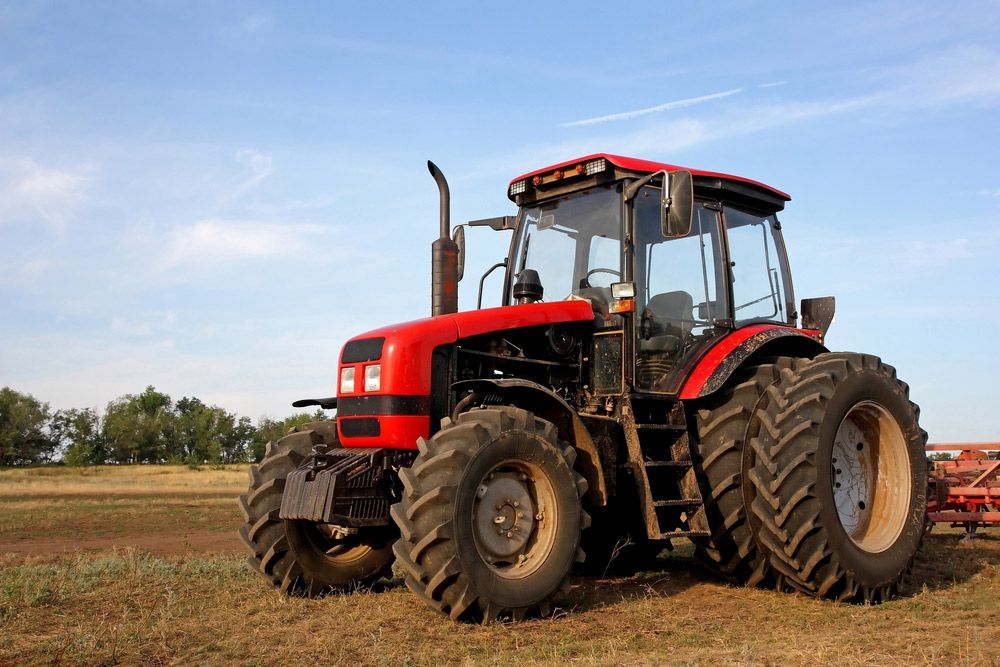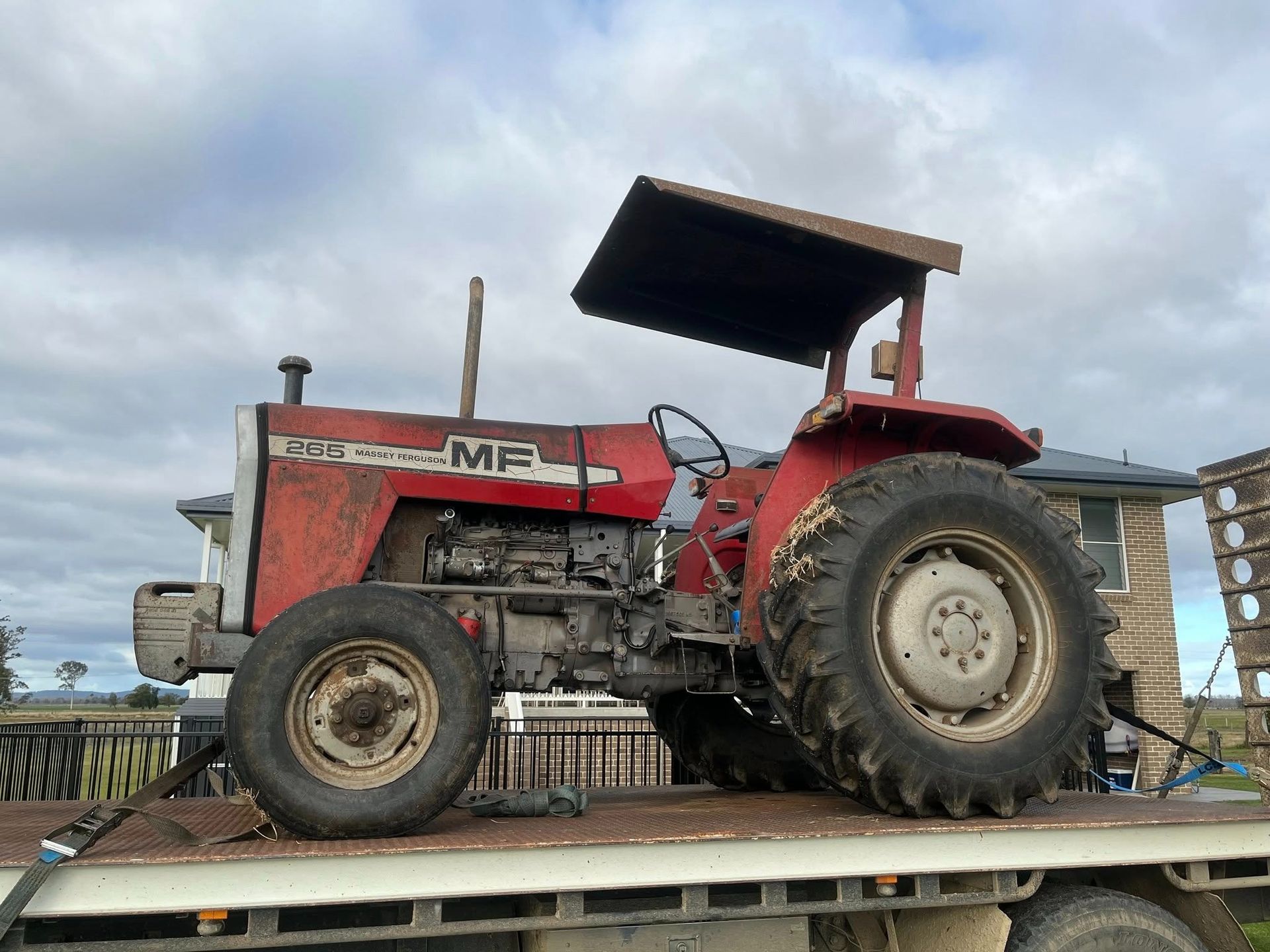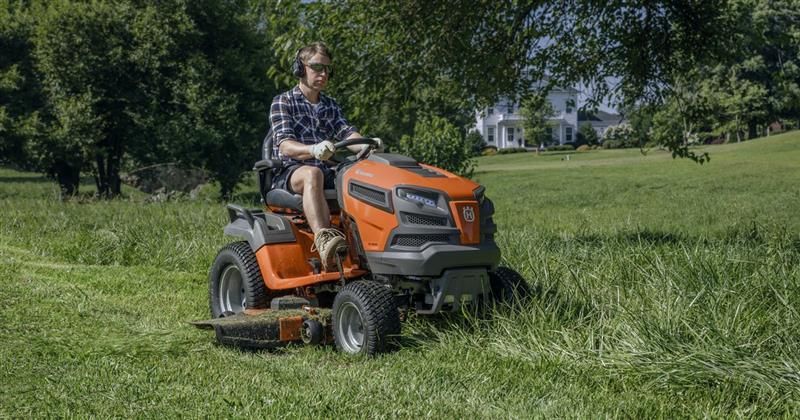Tractor Problems & How Professionals Fix Them
When running a productive farm or property, your tractor is often the most relied-upon piece of machinery. But like any hardworking machine, tractors are subject to wear, breakdowns, and occasional faults—especially with regular field use. Knowing the common tractor problems and how professionals approach these repairs can help reduce costly downtime and extend the life of your equipment.
From stubborn engine issues to complex hydraulic faults, here’s a closer look at what can go wrong—and why relying on trusted
tractor repairs in Grafton ensures your machinery stays in peak condition.
Engine Won’t Start? Understanding the Root of Power Failure
Few things are more frustrating than a tractor that won’t start, especially when time-critical tasks are on the line. The engine failing to turn over could be caused by something simple or signal a deeper mechanical or electrical problem.
Here’s how professional mechanics break down and fix standard tractor starting issues:
- Flat or faulty batteries are often to blame, and professionals use multimeters to test voltage and replace underperforming units with manufacturer-approved options.
- Fuel delivery problems are cleared using high-pressure cleaning and priming procedures, including clogged fuel filters or airlocks in diesel lines.
- Technicians identify starter motor faults, including worn brushes or solenoids, and rebuild or replace them for reliable cranking power.
- Ignition switch or key barrel wear can prevent power flow to the starter; these are typically replaced and rewired correctly to avoid future faults.
Overheating Engines in the Field: Signs & Long-Term Risks
An overheating tractor engine is more than an inconvenience—it’s a sign that your cooling system needs immediate attention. Ignoring heat-related issues can lead to cracked cylinder heads, warped components, and irreversible engine damage.
Professionals look for specific indicators and tackle the root of the problem through:
- Inspection of coolant levels and radiator blockages, which are often the first causes of inefficient cooling.
- Testing the water pump and thermostat to confirm if coolant is circulating correctly and at the proper temperatures.
- Flushing radiator systems are used to remove sediment, rust, or mineral build-up that restricts flow and heat transfer.
- Checking for head gasket leaks may present as coolant loss or white smoke in the exhaust.
Hydraulics Not Working as They Should? Here’s What’s Likely Wrong
Hydraulic systems control vital functions such as lifting, steering and attachment operation. When these systems malfunction, work efficiency plummets. Whether it’s sluggish movement or complete failure, the issue is usually within the fluid system, seals, or control valves.
Professional technicians typically diagnose and fix hydraulic issues by:
- Checking for contaminated or low hydraulic fluid is a common source of poor performance and internal damage.
- Inspecting hoses and couplings for leaks, wear, or air ingress disrupts pressure and movement.
- Testing control valves and relief settings, ensuring they meet factory specifications.
- Replacing damaged hydraulic cylinders or seals, particularly if there’s internal leakage or erratic movement.
Unusual Noises or Vibrations? Don’t Ignore These Early Warnings
Strange sounds or vibrations often serve as an early warning system for developing mechanical issues. While the temptation might be to “work through it,” professional servicing is vital to stop minor faults from becoming costly failures.
When a tractor makes unusual sounds, mechanics investigate:
- Grinding or whining noises from the gearbox may indicate worn bearings or gear damage.
- Knocking sounds from the engine, often traced to worn crankshaft bearings or piston slap.
- Clunking from the driveline is usually tied to loose universal joints or damaged couplings.
- Vibration through the steering wheel or seat can point to misaligned pulleys, engine mounts or tyre imbalance.
Transmission Trouble: Why Gear Shifts May Be Slipping or Sticking
A tractor’s transmission is built to handle rugged terrain, heavy loads, and repetitive shifting—but it’s not immune to wear. Shifting problems, gear slipping, or delays in engagement usually mean something is out of sync.
Tractor repair experts typically address these issues through:
- Fluid checks and replacements, as low or contaminated transmission fluid is a leading cause of gear engagement problems.
- Linkage adjustment or lubrication, particularly in older manual gear setups.
- Clutch system inspection and replacement, especially if there’s slippage or poor response under load.
- Repair or replacement of internal gearbox components, such as synchros, bearings or gear teeth.
Tyre Wear & Steering Drift: Problems You Can’t Afford to Ignore
Excessive tyre wear and poor steering alignment reduce efficiency, increase fuel usage, and strain other components. These problems are often linked to worn suspension parts or neglected routine maintenance.
To restore balance and traction, professionals inspect:
- Wheel alignment, correcting drift or tracking issues that cause uneven wear.
- Tyre pressure and tread patterns, adjusting for correct inflation and replacing tyres past safe operation limits.
- Steering linkages and joints may be loose or worn, especially after years of rugged use.
- Front axle and suspension condition, ensuring consistent ground contact and stability.
Electrical Faults Affecting Lights, Sensors or Gauges? Here’s What To Do
Modern tractors rely heavily on electrical systems for both safety and performance. Faults in lighting, warning systems, sensors or dashboards can create unsafe working conditions or mask deeper mechanical issues.
To restore safe operation, tractor repair professionals perform:
- Battery and alternator testing to confirm consistent voltage output and charging performance.
- Wiring inspections, identifying damaged, corroded or shorted cables that interrupt circuit flow.
- Fuse and relay checks, ensuring power reaches key components like starter motors and light assemblies.
- Instrument cluster testing, resolving sensor errors or gauge misreadings caused by bad connections or module faults.
Why Professional Tractor Repairs in Grafton Help Reduce Downtime
Attempting to fix tractor issues without the proper training or tools often leads to more damage, wasted time, and ongoing issues. Working with skilled providers of tractor repairs in Grafton offers fast, reliable outcomes that prioritise long-term performance.
Here are the key advantages of turning to local professionals:
- Faster diagnosis and access to parts, reducing time spent off the job.
- Trained technicians who understand your specific make and model inside out.
- Preventative servicing, helping avoid future breakdowns through regular inspections.
- Warranty-backed repairs, offering peace of mind for all mechanical work completed.
Book Trusted Tractor Repairs in Grafton Today
If your tractor shows signs of trouble, don’t wait for a breakdown in the middle of your workday. At
Leslie Farm & Garden Machinery, our qualified team provides thorough and efficient tractor repairs in Grafton, covering everything from engine diagnostics to hydraulic system servicing. Whether it’s a stubborn fault or routine maintenance, we ensure your equipment performs reliably when it matters most.
Contact us today!













